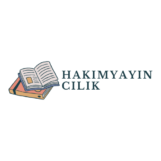As a creative writing enthusiast I’ve discovered that starting new writing projects can be both thrilling and daunting. Whether you’re an aspiring novelist or simply someone who loves to write the right project can spark your imagination and help develop your storytelling skills.
I’ll never forget the moment when I first explored different writing projects that transformed my creative process. From crafting short stories and personal essays to experimenting with poetry and screenwriting there’s an endless array of possibilities to explore. These projects don’t just improve your writing – they open up new worlds of self-expression and help you find your unique voice as a writer.
Key Takeaways
- Creative writing projects come in various forms, including novels, short stories, poetry portfolios, and screenplays, each offering unique opportunities for artistic expression and skill development
- Successful creative writing requires three core elements: strong character development, well-structured plots, and detailed world-building to create engaging and believable stories
- Essential writing tools like Scrivener, Google Docs, and ProWritingAid can significantly improve productivity and writing quality, while online communities provide valuable feedback and support
- Setting clear goals, establishing consistent writing schedules, and breaking large projects into manageable milestones are crucial for project completion and success
- Writer’s block can be overcome through techniques like detailed outlining, timed writing sprints, and location changes, while effective editing requires a structured multi-pass approach
Creative Writing Projects
Creative writing projects encompass structured activities designed to develop storytelling abilities through imaginative expression. I’ve found these projects serve as focused frameworks for crafting original content across various formats.
Different Types of Creative Writing
- Novel Writing Projects: Long-form narratives spanning 50,000+ words with complex plot structures, character development arcs.
- Short Story Collections: Series of interconnected or standalone stories ranging from 1,000-7,500 words each.
- Poetry Portfolios: Compilations of themed poems exploring specific styles like sonnets, haikus or free verse.
- Screenplay Development: Script-based projects following industry standard formats for film, TV or theater.
- Personal Essays: First-person narrative pieces examining specific life experiences or topics.
- Flash Fiction Series: Ultra-short stories under 1,000 words focusing on single moments or concepts.
- Literary Journals: Curated collections combining multiple writing forms into cohesive publications.
- Character Studies: Detailed explorations of fictional personas through various writing exercises.
- Technical Growth: Enhanced vocabulary usage, grammar mastery, sentence structure variation
- Storytelling Skills: Improved plot development, pacing control, narrative arc construction
- Creative Development:
- Strengthened imaginative thinking
- Expanded conceptual boundaries
- Increased innovative problem-solving abilities
- Professional Advancement:
- Portfolio building opportunities
- Publishing credential development
- Writing sample generation
- Personal Development:
- Enhanced self-expression capabilities
- Increased emotional awareness
- Developed unique writing voice
- Project Management:
- Organized writing schedules
- Structured goal setting
- Deadline management experience
Getting Started With Your Creative Writing Project
Starting a creative writing project involves establishing clear objectives and creating a structured approach to achieve them.
Setting Writing Goals
I set measurable writing goals by determining specific word counts, chapter completions or project milestones for each writing session. My daily targets range from 500-2,000 words depending on the project scope. Here’s how I organize my writing goals:
- Track progress using word count metrics
- Break large projects into smaller milestones
- Set completion dates for each project phase
- Define quality benchmarks for drafts
- Establish revision timelines
- Morning writing sessions from 6-8 AM
- Weekend blocks of 3-4 hours
- 30-minute editing periods
- Weekly planning sessions
- Monthly progress reviews
| Writing Activity | Time Allocation | Weekly Frequency |
|---|---|---|
| First Draft | 2 hours | 5 days |
| Editing | 30 minutes | 3 days |
| Planning | 1 hour | 1 day |
| Review | 2 hours | 1 day |
Essential Elements of Creative Writing
Creative writing relies on fundamental components that transform ideas into compelling stories. I’ve identified three core elements that form the foundation of engaging creative work.
Character Development
Characters serve as the emotional anchor in creative writing projects. I create detailed character profiles encompassing physical traits, personal histories, motivations, fears, desires, flaws, strengths, and relationships. A character development worksheet includes:
- Demographic details: age, occupation, education, background
- Personality traits: 3-5 dominant characteristics that drive behavior
- Character arc: transformation points throughout the story
- Relationships: connections to other characters, allies, antagonists
- Internal conflicts: personal struggles, moral dilemmas, growth opportunities
Plot Structure
Plot provides the framework that moves the story forward. I organize my plots using these key components:
- Inciting incident: the event that disrupts normal life
- Rising action: 3-4 escalating conflicts or challenges
- Climax: the peak moment of tension or revelation
- Falling action: immediate consequences of the climax
- Resolution: final status of characters and situations
- Physical setting: geography, climate, architecture
- Social structure: governments, hierarchies, relationships
- Cultural elements: customs, traditions, beliefs
- Economic systems: commerce, resources, technology
- Historical context: past events that shape the present
- Rules and limitations: physical laws, magic systems, technological boundaries
Popular Creative Writing Project Ideas
I’ve found that exploring diverse creative writing projects deepens my storytelling ability while offering distinct opportunities for artistic expression. Here are three engaging project formats that showcase different writing styles.
Short Story Collections
A short story collection centers around 8-12 interconnected narratives spanning 2,000-7,500 words each. I organize my collections by theme (love, loss, redemption), setting (urban landscapes, coastal towns, alternate realities) or character connections (family sagas, workplace dynamics, neighborhood tales). Creating a cohesive collection requires attention to recurring motifs, consistent voice across stories while maintaining individual story arcs.
Personal Memoirs
My memoir writing focuses on crafting 20-30 focused chapters documenting significant life experiences, transformative moments or specific time periods. Each chapter ranges from 3,000-5,000 words, incorporating sensory details, dialogue reconstruction, emotional reflection. Essential memoir elements include:
- Scene setting with vivid environmental details
- Character portrayal of real people
- Timeline organization (chronological, thematic, reverse)
- Emotional arc development
- Integration of historical context
- Balanced perspective between past and present views
Poetry Anthologies
Poetry anthology projects involve creating 30-50 poems organized into thematic sections. I structure my collections using these formats:
- Narrative sequences telling complete stories
- Form-based groupings (sonnets, haikus, free verse)
- Thematic series exploring specific concepts
- Seasonal or temporal progressions
- Geographic or location-based collections
- Voice or persona-driven sequences
Each section contains 8-12 related poems with consistent stylistic elements, imagery patterns or metrical structures.
Tools and Resources for Writers
I’ve compiled essential tools and resources that streamline the creative writing process and enhance productivity. These resources provide the foundation for efficient project management and creative development.
Writing Software and Apps
My go-to writing tools combine functionality with user-friendly interfaces. Scrivener offers comprehensive manuscript formatting with a distraction-free writing mode and built-in organizational tools for chapters and research materials. Google Docs enables real-time collaboration and automatic cloud backup. ProWritingAid identifies grammar issues and style improvements through 25 detailed writing reports. Grammarly’s AI-powered editor catches contextual spelling errors and suggests vocabulary enhancements. Focus@Will provides scientifically optimized music playlists that increase concentration during writing sessions.
| Software/App | Key Features | Best Use Case |
|---|---|---|
| Scrivener | Chapter organization, research management | Long-form projects |
| Google Docs | Real-time collaboration, cloud storage | Team projects |
| ProWritingAid | Style analysis, grammar checking | Editing phase |
| Grammarly | Context-aware corrections | Daily writing |
| Focus@Will | Productivity music | Writing sessions |
Writing Communities
I’ve found valuable support through online writing communities that offer feedback and motivation. Critique Circle operates on a credit system where writers earn points by reviewing others’ work to receive feedback on their own pieces. Reddit’s r/writing hosts weekly critique threads and craft discussions with 2.8 million members. NaNoWriMo’s forums connect 400,000+ writers during annual writing challenges with year-round support groups. Discord writing servers create focused channels for genre-specific feedback and accountability partnerships. Writer’s Digest community features expert workshops and manuscript swap opportunities.
| Community | Active Members | Focus Area |
|---|---|---|
| Critique Circle | 100,000+ | Peer review |
| r/writing | 2.8M | Craft discussion |
| NaNoWriMo | 400,000+ | Writing challenges |
| Discord Servers | Varies | Genre-specific |
| Writer’s Digest | 500,000+ | Professional development |
Common Challenges and Solutions
Creative writing projects present specific obstacles that require practical strategies to overcome. Here’s how I navigate two major challenges in my writing journey.
Overcoming Writer’s Block
I break through writer’s block using five proven techniques. First, I create a detailed outline with 3-5 key plot points before starting each writing session. Second, I use timed writing sprints of 25 minutes to generate content without self-editing. Third, I change my writing location every 2-3 days, alternating between my home office desk, local library, or coffee shop. Fourth, I maintain a story bible with character profiles, plot threads, and world-building details for quick reference. Fifth, I participate in daily writing prompts from platforms like r/WritingPrompts to keep my creativity flowing.
Editing Your Work
I approach editing through a structured three-pass system. During the first pass, I focus on story structure, plot holes, and character arcs using a chapter-by-chapter outline. The second pass addresses line-level issues:
- Removing filter words (felt, saw, heard)
- Strengthening weak verbs
- Eliminating redundant phrases
- Checking dialogue tags
- Enhancing sensory details
My final pass involves technical elements:
- Grammar verification using ProWritingAid
- Consistent formatting in Scrivener
- Proper punctuation placement
- Chapter transitions
- Timeline consistency
I schedule editing sessions in 45-minute blocks, taking 15-minute breaks between each session to maintain focus and accuracy. Each manuscript page receives 3-4 thorough reviews before moving to beta readers or professional editors.
Story Telling Projects
Creative writing projects have transformed my approach to storytelling and helped me grow both personally and professionally. I’ve discovered that success in writing isn’t just about talent but also about having the right tools structure and mindset.
Whether you’re crafting short stories developing complex characters or diving into poetry these projects offer endless opportunities for creative expression. I’ve learned that combining practical strategies with creative freedom leads to the most rewarding results.
I encourage you to take that first step into your writing journey. Remember that every successful writer started exactly where you are now. With dedication proper planning and the right resources you’ll be well-equipped to bring your creative vision to life.

